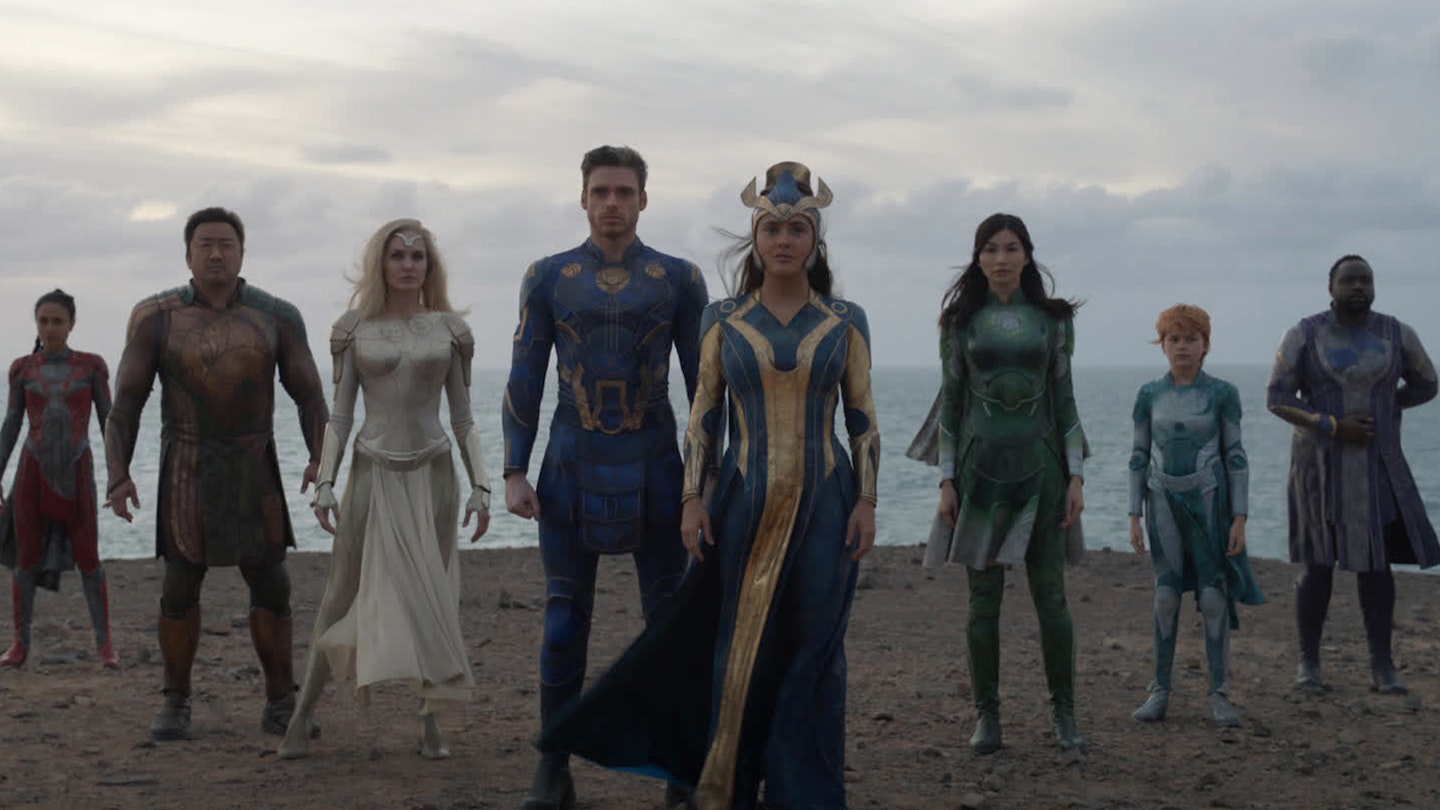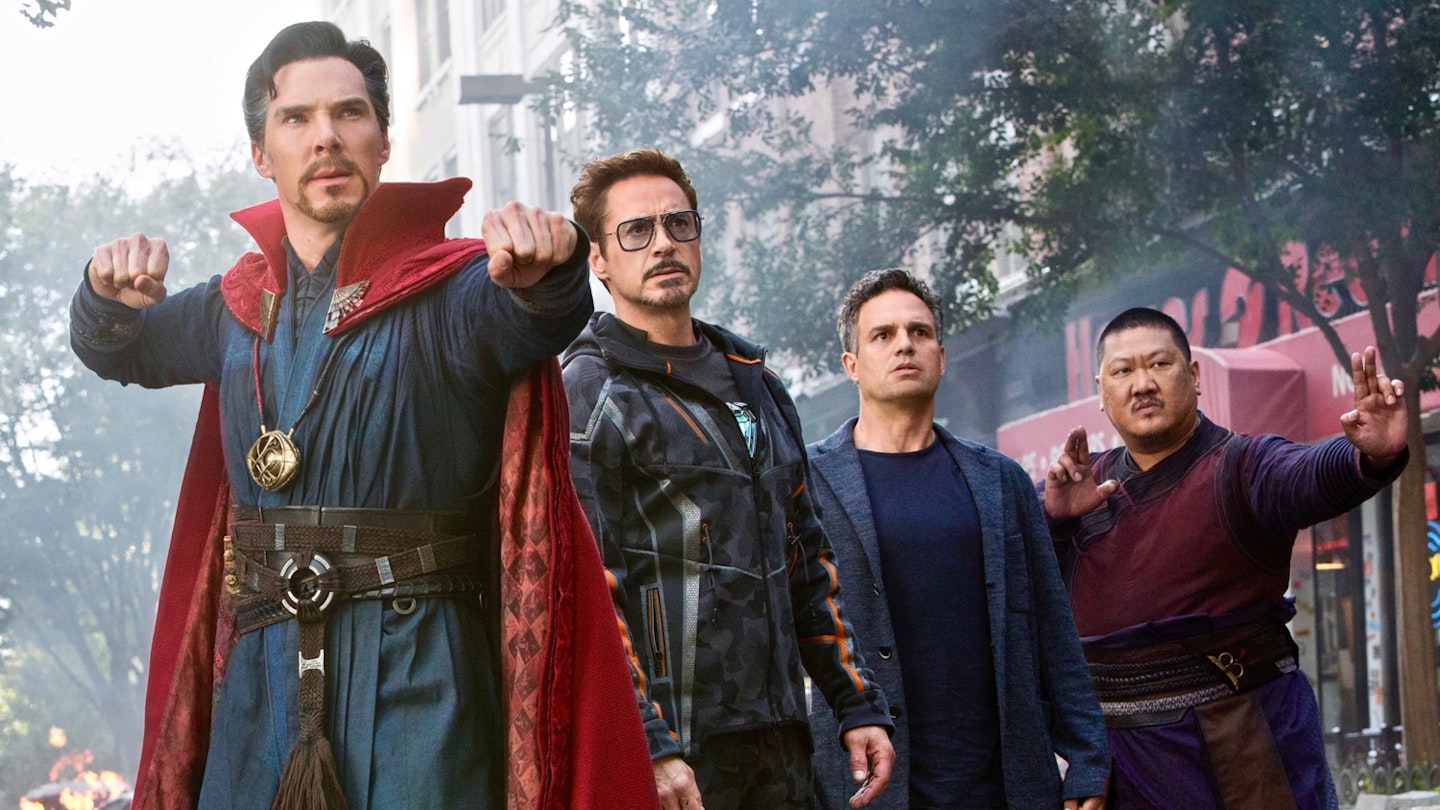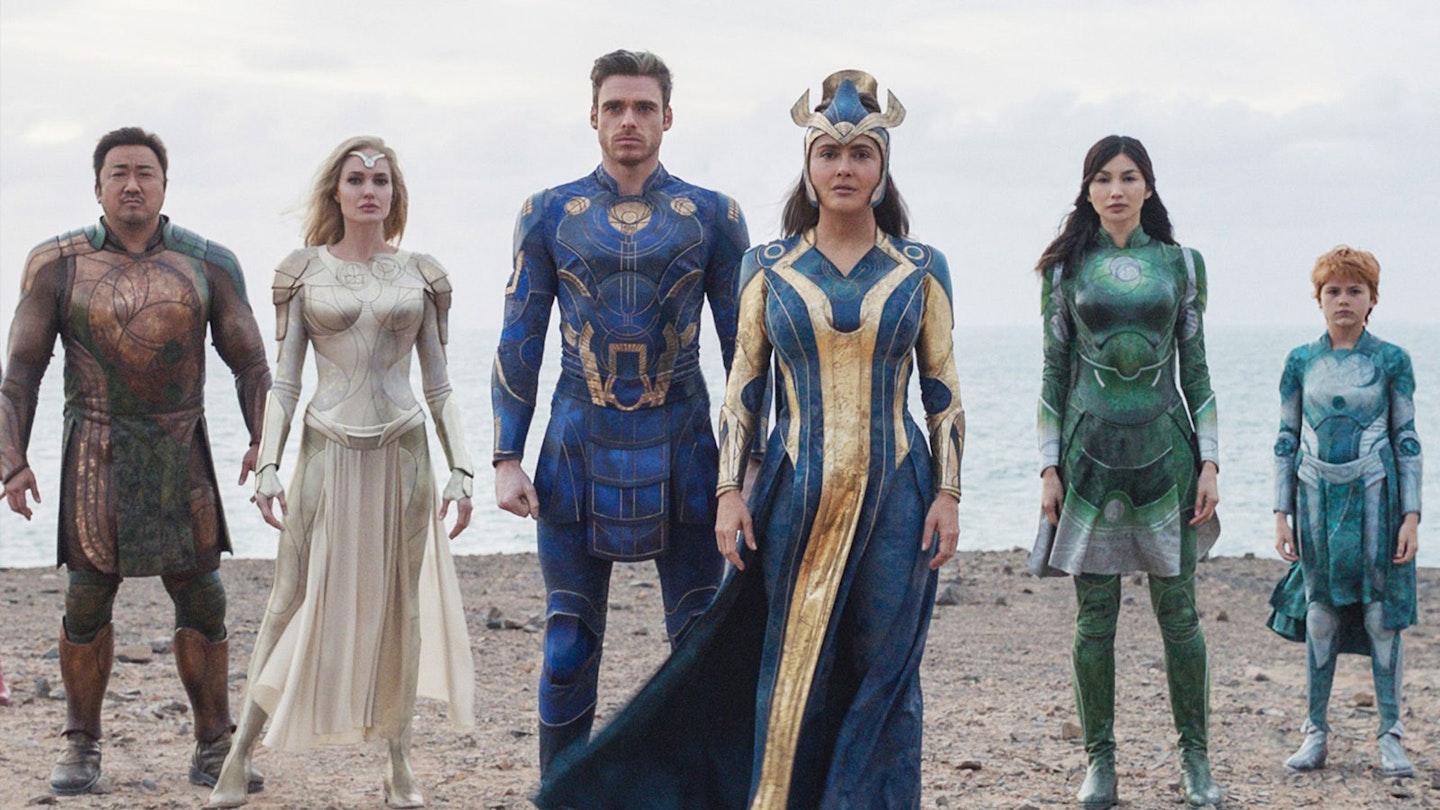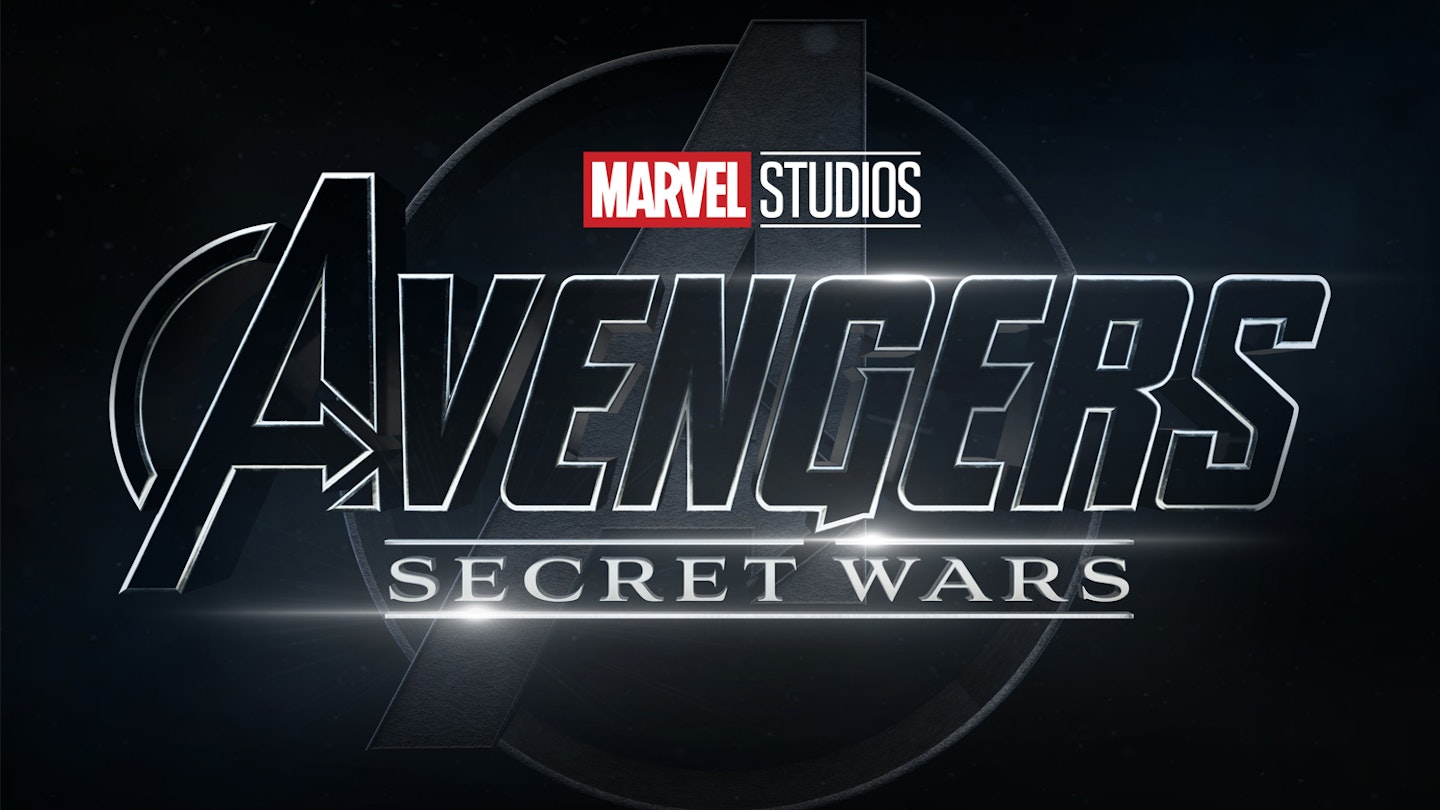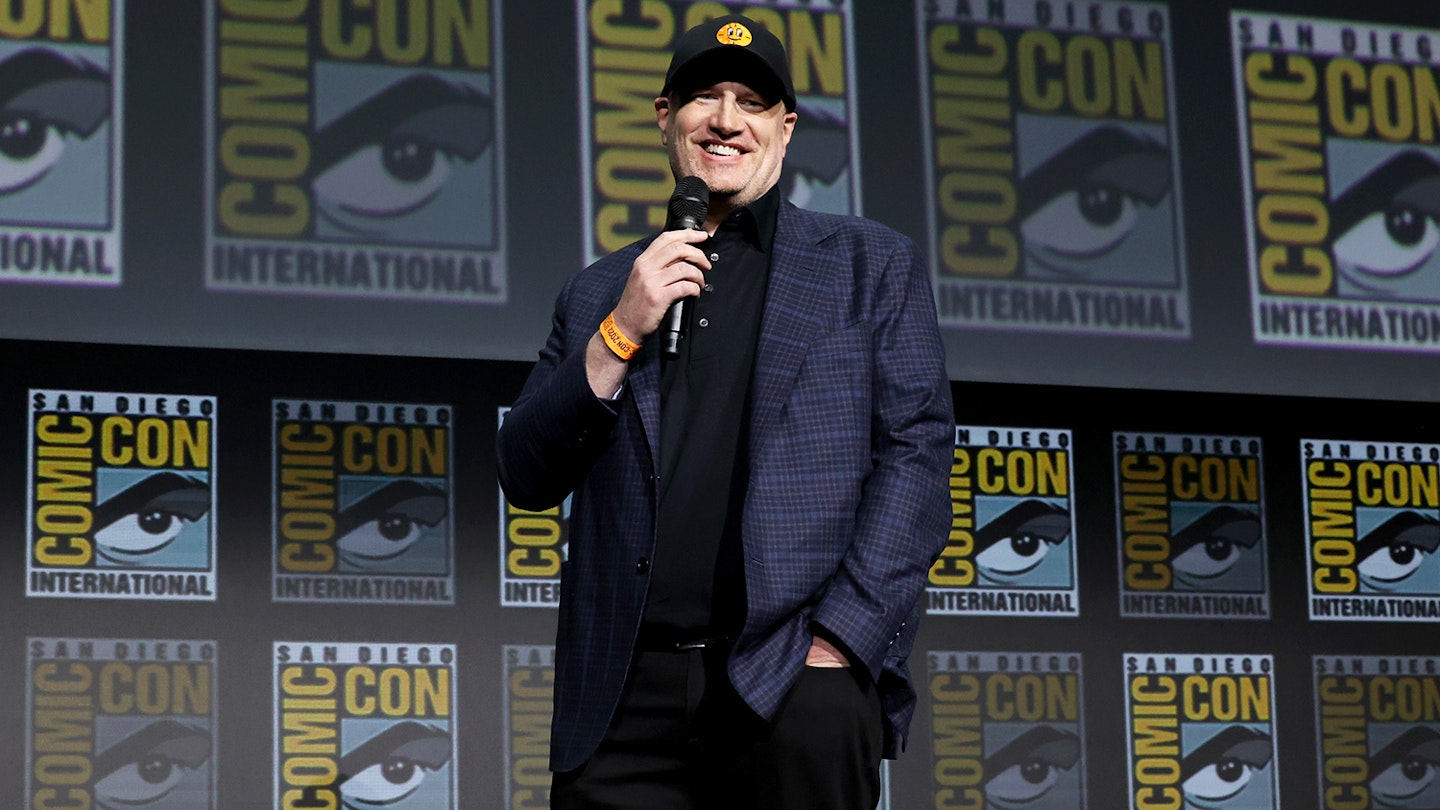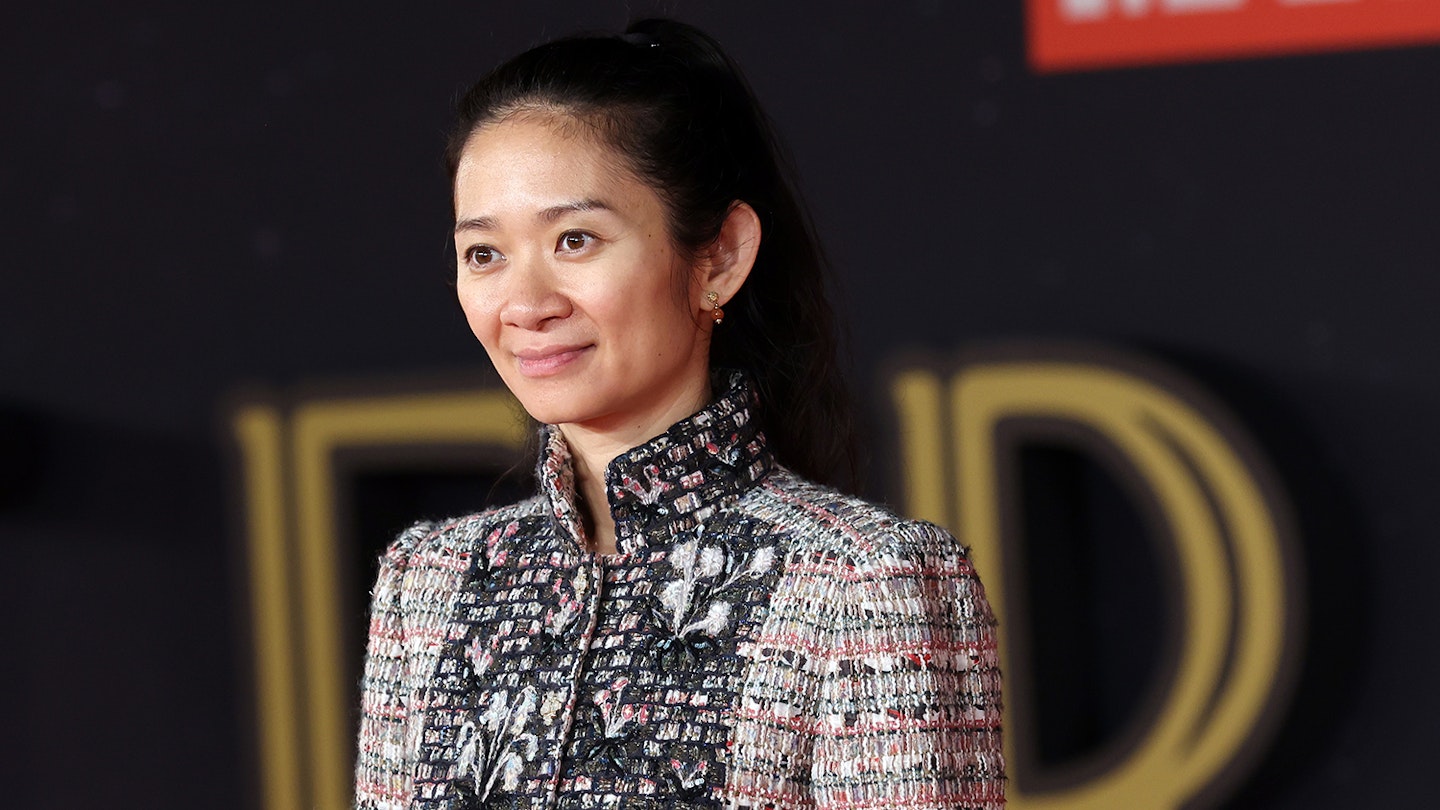It’s hard to overstate how much of a coup it was for Marvel Studios to hire Chloé Zhao as the director of Eternals. Plenty of high-profile filmmakers have walked through its doors, but Marvel is, first and foremost, a producer-driven studio, guided by the five-dimensional chess moves of Kevin Feige, who can see the studio’s future like Doctor Strange with the Time Stone. Directors come and go, but Feige is always there.
Zhao feels different. The most recent winner of both Best Director and Best Picture Oscars (for Nomadland), Zhao brings prestige and critical cred. She is an impressively understated, tender, ground-level kind of filmmaker. Her first three films, all carefully paced and driven by characters over narrative, harnessed the psychogeography of American landscapes to better understand marginalised people surviving on the fringes. What happens when this most humanistic of director is let loose with superhumans?
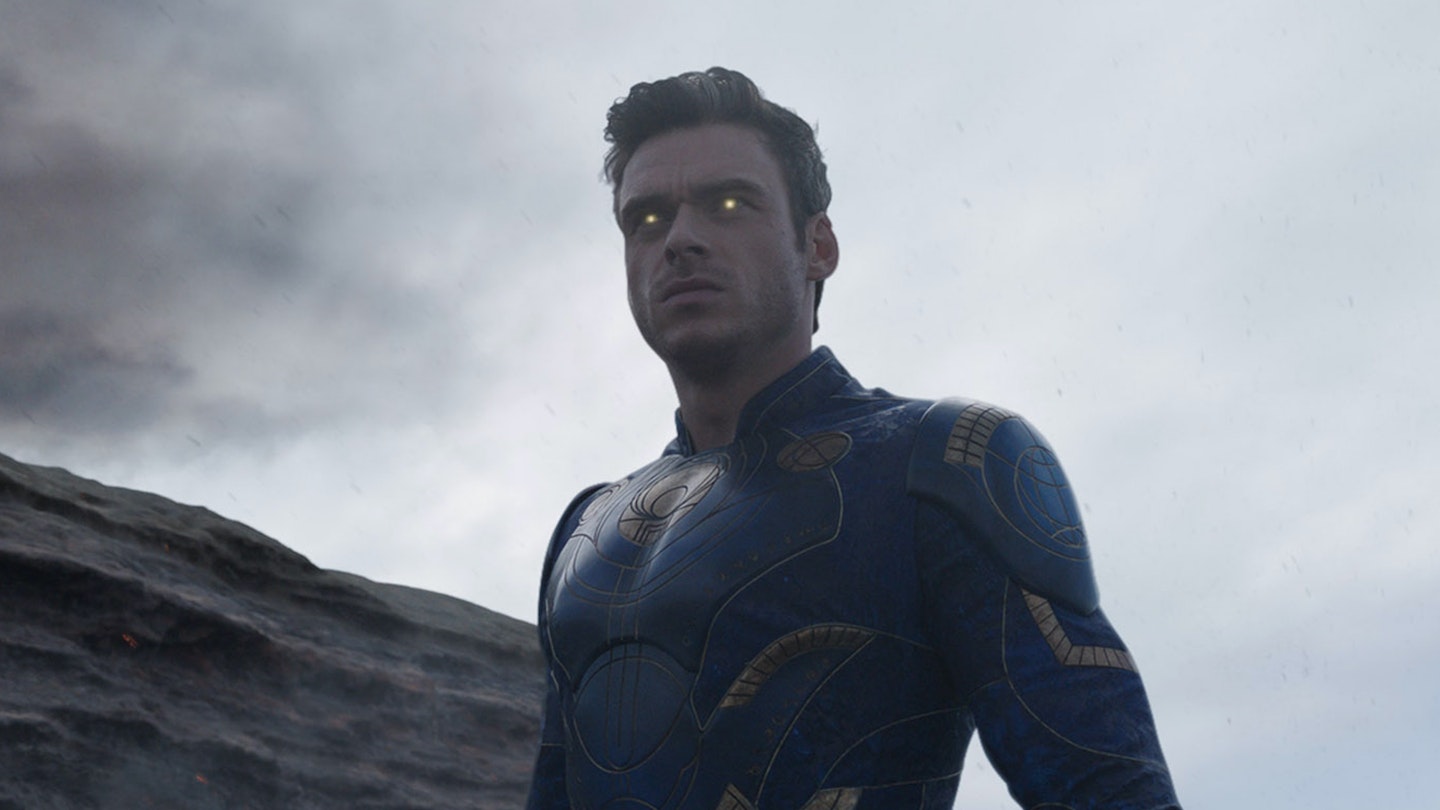
There’s a fascinating tension in Eternals between the unstoppable force of the Marvel project and the immovable object of Zhao’s artistic sensibilities. In many ways, this looks and feels nothing like any Chloé Zhao film we’ve seen before. Her regular cinematographer, Joshua James Richards, is out; Marvel lenser Ben Davis is in, along with the truckload of CGI necessary for superhero stories. Zhao’s trademark realism and semi-documentarian approach is gone, substituted by stiff fantasy exposition and blockbuster conventions. No bad thing in themselves, but anyone anticipating the first ‘arthouse Marvel’ should temper their expectations.
And yet in many ways, this film looks and feels nothing like any previous Marvel film. There are, for example, at least a couple of firsts: a genuine sex scene, and an onscreen gay kiss — unheard of in the normally rather chaste MCU. She finds room, too, for visual flair and authorship, even within that blockbuster framework; her love of a wide-angle panorama or a Terrence Malick-esque sunset lends this Jack Kirby cosmic romp a much-need earthiness.
Playing on such a colossal stage, it’s inevitably challenging to keep the focus at the (super)human level.
It’s an important counter-balance, in fact, because Eternals is nothing if not ambitious. In many ways this is Marvel’s Genesis story: a Star Wars-style opening crawl sets things up in biblical proportions (“In the beginning…”). The Eternals, we are told, are not just Earth’s true mightiest heroes, but essential cogs in the engine of human evolution. Like the monoliths of 2001: A Space Odyssey, they nudge us along at the key turning points of civilisation, and provide inspirations for ancient human myths.
This is storytelling on an epic scale, spanning from 5,000 BC to the present day, the stakes laid down by the godlike Celestials. The film’s confident structure barrels between flashbacks and locations, trotting the globe from ancient Mesopotamia to the gardens of Babylon to the Aztec city of Tenochtitlan to, erm, Camden High Street.
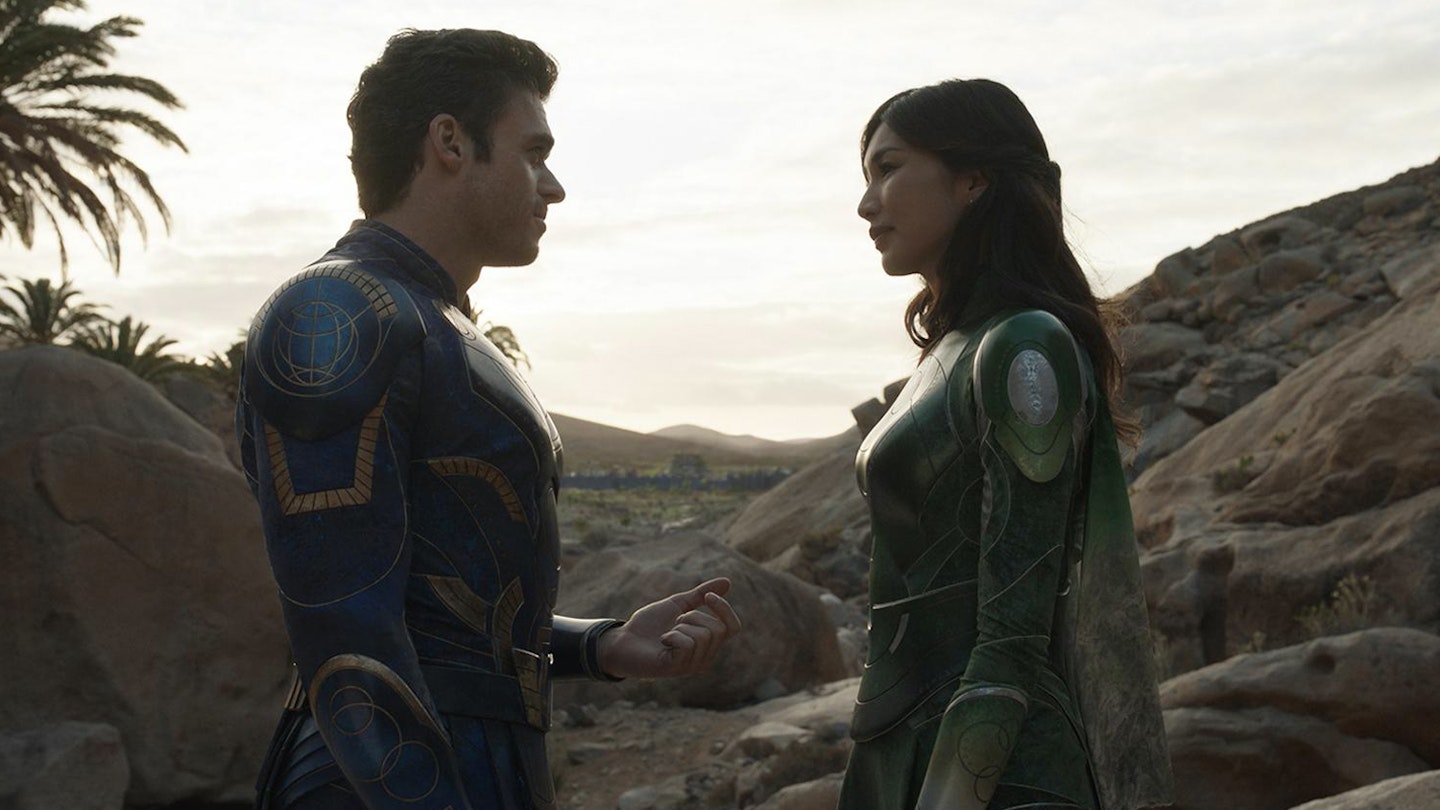
Playing on such a colossal stage, it’s inevitably challenging to keep the focus at the (super)human level. Zhao takes her time introducing everyone properly, devoting much of the runtime (at 157 minutes, this is the MCU’s second-longest film after Endgame) to getting the team of ten back together, after centuries apart. It’s undeniably refreshing to see such a mix in the line-up — these ancient immortals talk in Irish brogues or American Sign Language without ever feeling the need to address it — but some characters leave more of an impression than others.
The definite standouts are Kumail Nanjiani’s Kingo, an Eternal who takes on a second career as a Bollywood star; his ‘valet’ Karun, played by Harish Patel, who supplies a scene-stealing everyman befuddlement; and Angelina Jolie’s Thena, effortlessly regal and classically aloof. Richard Madden’s Ikaris and Gemma Chan’s Sersi have trickier jobs; as steely heroes and nominal leaders, they’re lumbered with generic dialogue (“We’re a team — we should stick together!”) and smothering earnestness.
It’s surprising, in fact, how earnest Eternals can be. Sometimes that’s a welcome contrast from Marvel’s stock-in-trade snark. As with Star Trek’s Prime Directive, the Eternals are bound into a non-interventionist policy — only fight the Deviants, otherwise leave well alone. Is it moral, the film ponders at one point, for superheroes to simply sit back and let humans commit genocide?
More frequently, though, it seems to fall into familiar traps about saving the world and learning to work together as a team; when a giant, CGI-heavy battle begins to thwart another potential apocalypse, you start to feel a formula being leaned on. It’s a stunningly successful formula, of course. But it means, despite that exciting name on the director’s chair, this is still business as usual for Marvel — a continuation, rather than a great leap.
